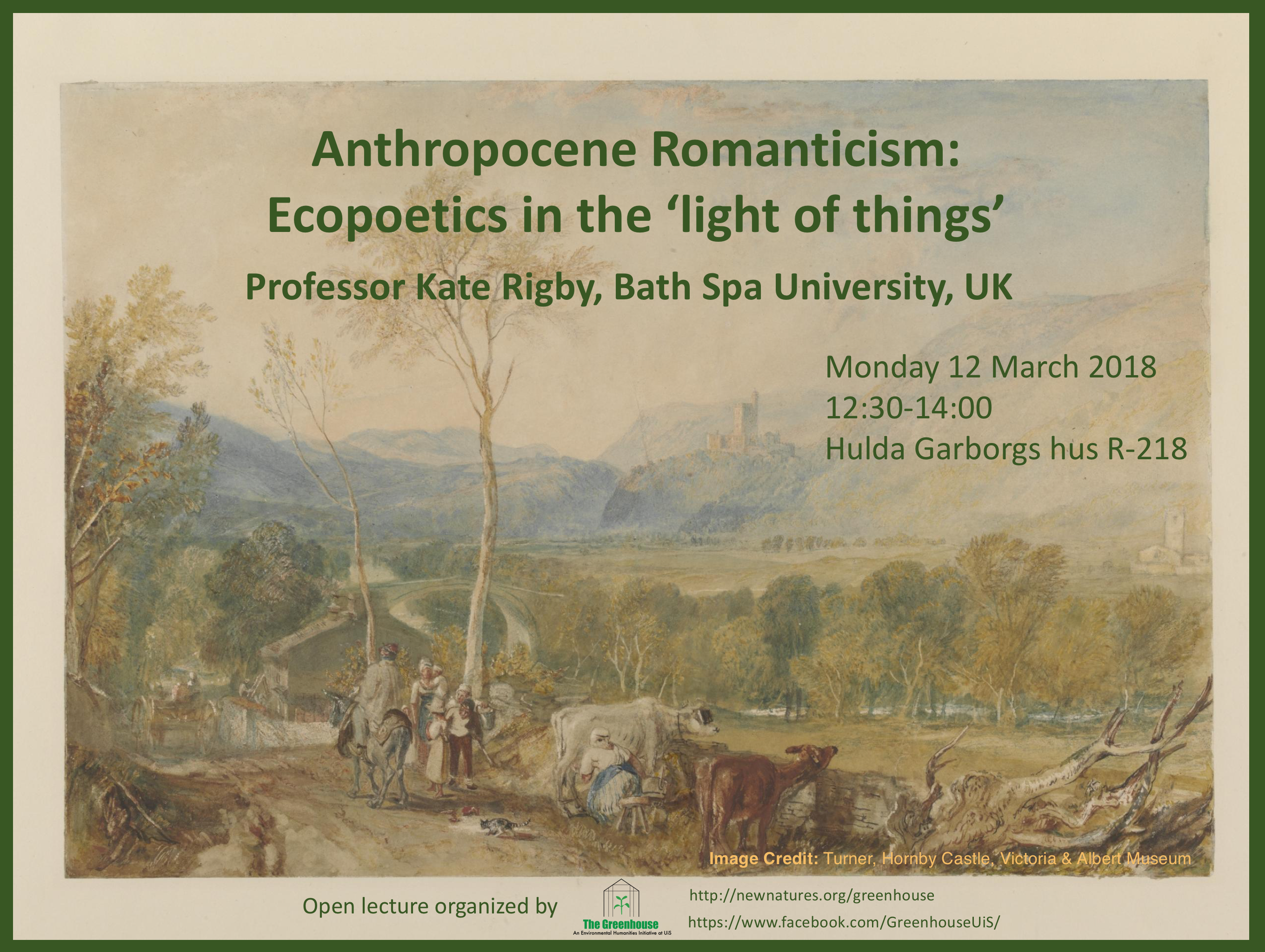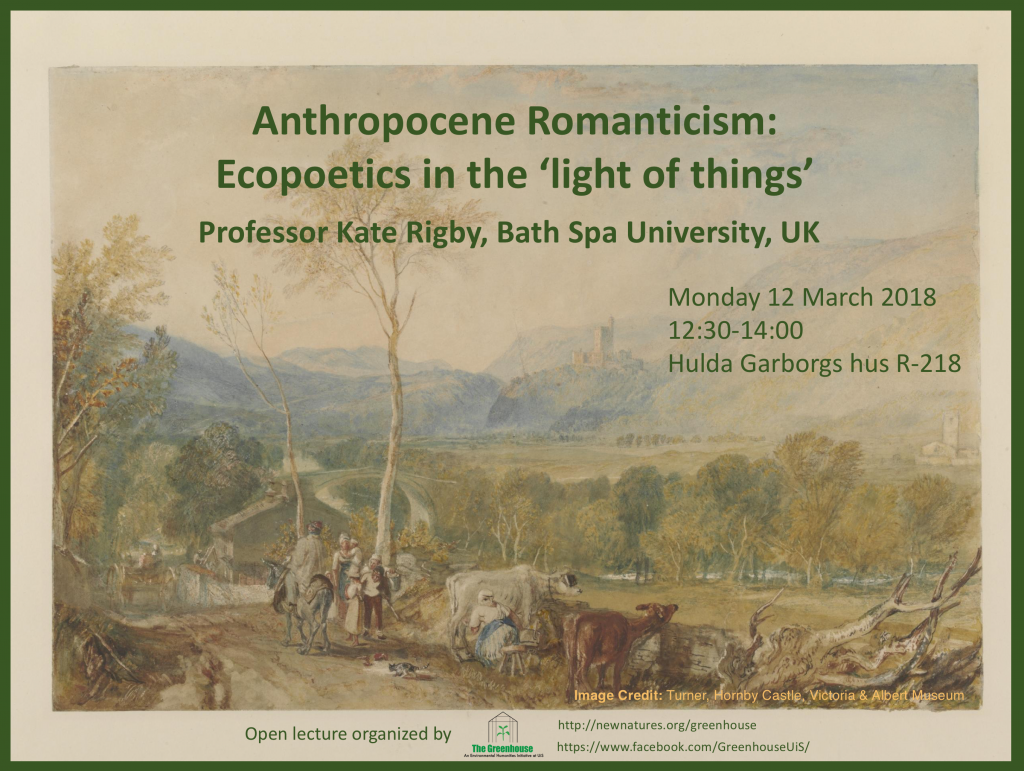On Monday, 12 March 2018, Professor Kate Rigby from Bath Spa University, UK and Monash University, Australia, will give an open lecture “Anthropocene Romanticism: Ecopoetics in the ‘light of things'” in the Greenhouse speaker series. We will be in Hulda Garborgs hus room R-218, 12:30-14:00.
Professor Kate Rigby FAHA is Director of the Research Centre for Environmental Humanities at Bath Spa University and Adjunct Professor at Monash University (Melbourne). Her research lies at the intersection of environmental literary, philosophical, historical and religious studies, with a specialist interest in European Romanticism, ecopoetics, and eco-catastrophe. She is Senior Editor of the journal Philosophy Activism Nature, co-editor of the University Press of Virginia series, Under the Sign of Nature, and her books include Topographies of the Sacred: The Poetics of Place in European Romanticism (2004), Ecocritical Theory: New European Approaches (co-edited, 2011) and Dancing with Disaster: Environmental Histories, Narratives, and Ethics for Perilous Times (2015). A key researcher with the Humanities for the Environment Mellon Australia-Pacific Observatory, she was the inaugural President of the Association for the Study of Literature, Environment and Culture (Australia-New Zealand), and the founding Director of the Australia-Pacific Forum on Religion and Ecology.
Here is an abstract of the lecture:
This paper responds ecocritically to the invitation issued by Wordsworth’s poem “The Tables Turned” to “come forth into the light of things”: an invitation, I argue, that repays reconsideration in relation to contemporary “thing” theories; and one that has acquired a new cogency in light of the socio-ecological imperilment of so many of the particular things that co-constitute the earth’s dwindling biosphere in the calamitous era, problematically dubbed ‘the Anthropocene’. Drawing in particular on the speculative realism of Steven Shaviro, in conjunction with Jane Bennett’s vital materialism and Douglas Christie’s contemplative ecology, I advocate a “contemplative ecopoetics” of things that is attentive both to the ungraspable singularity of particulars and to their constitutive interconnectivities.
The paper emerges from my current book project, Anthropocene Romanticism: Poetry/Ecology/Decolonisation (Bloomsbury, forthcoming 2019), which returns to Romanticism in the horizon of current Anthropocene debates. The book sets out to counter what I take to be reductive critiques of Romanticism by demonstrating the continuing significance (at once aesthetic, ethico-political and pragmatic) of the ecopoetic arts of resistance/recollection/reconnection/recalibration that were first practiced and theorised by British and German writers of the Romantic period at the onset of fossil-fuelled industrialisation and in the face of new forms of colonisation of non-dominant peoples and beyond-human nature. Discussing also the work of a number of modern and contemporary poets from North America and Australia, I consider what it might mean to creatively re-inherit Romanticism in crafting decolonising practices of sympoiesis.

